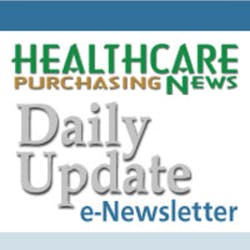New guidelines for preventing heart disease, stroke released
The 2019 Primary Prevention of Cardiovascular Disease guideline from the American College of Cardiology (ACC) and the American Heart Association (AHA) has been updated with important information, including the recommendation that aspirin should only rarely be used to help prevent heart attacks and stroke in people without known cardiovascular disease.
The guideline was presented at ACC’s 68th Annual Scientific Session and offers comprehensive but practical recommendations for preventing cardiovascular disease, which remains the leading cause of death for both men and women in the United States.
The new prevention guideline, said Kenneth Jay Pollin, Professor of Cardiology at Johns Hopkins Medicine, is intended to provide a roadmap of strategies that can be used and tailored to help people without a history of heart disease stay heart healthy and, importantly, emphasize the need to identify and address personal or social barriers for doing so (e.g., income and education levels, cost concerns, lack of health insurance, access to healthy foods or safe places to exercise, life stressors).
The document synthesizes the best data and proven interventions for improving diet and exercise, tobacco cessation and optimally controlling other factors that affect one’s likelihood of heart problems and stroke (e.g., obesity, diabetes, high cholesterol and high blood pressure). The document also discusses the challenges that may interfere with individuals being able to integrate better lifestyle habits.
The biggest change is aspirin use – for people who’ve had a heart attack, stroke, open heart surgery or stents placed to open clogged arteries, aspirin can be lifesaving. But regular use of aspirin to prevent heart attacks and stroke in healthy people isn’t as clear-cut.
In this guideline, ACC/AHA experts offer science-based guidance that aspirin should only rarely be used to help prevent heart attacks and stroke in people without known cardiovascular disease. Recent research suggests that the chance of bleeding, given the blood-thinning effect of aspirin, may be too high and the evidence of benefit – the number of heart attacks or strokes that are actually prevented – is not sufficient enough to make a daily aspirin worth taking for most adults in this setting.
“Clinicians should be very selective in prescribing aspirin for people without known cardiovascular disease,” Blumenthal said. “It’s much more important to optimize lifestyle habits and control blood pressure and cholesterol as opposed to recommending aspirin. Aspirin should be limited to people at the highest risk of cardiovascular disease and a very low risk of bleeding.”
Based on a simplified synopsis of the latest ACC/AHA cholesterol guideline, for primary prevention, statins should be commonly recommended with lifestyle changes to prevent cardiovascular disease among people with elevated low density lipoprotein (LDL) cholesterol levels (≥ 190 mg/dl), Type 2 diabetes, and anyone who is deemed to have a high likelihood of having a stroke or heart attack upon reviewing their medical history and risk factors and having a detailed discussion with their clinician.
For people with Type 2 diabetes, which is one of the strongest risk factors for cardiovascular disease, there are new data that two classes of diabetes medications, which work to lower blood sugar levels, can also cut the risk of heart attack, stroke and related deaths.
